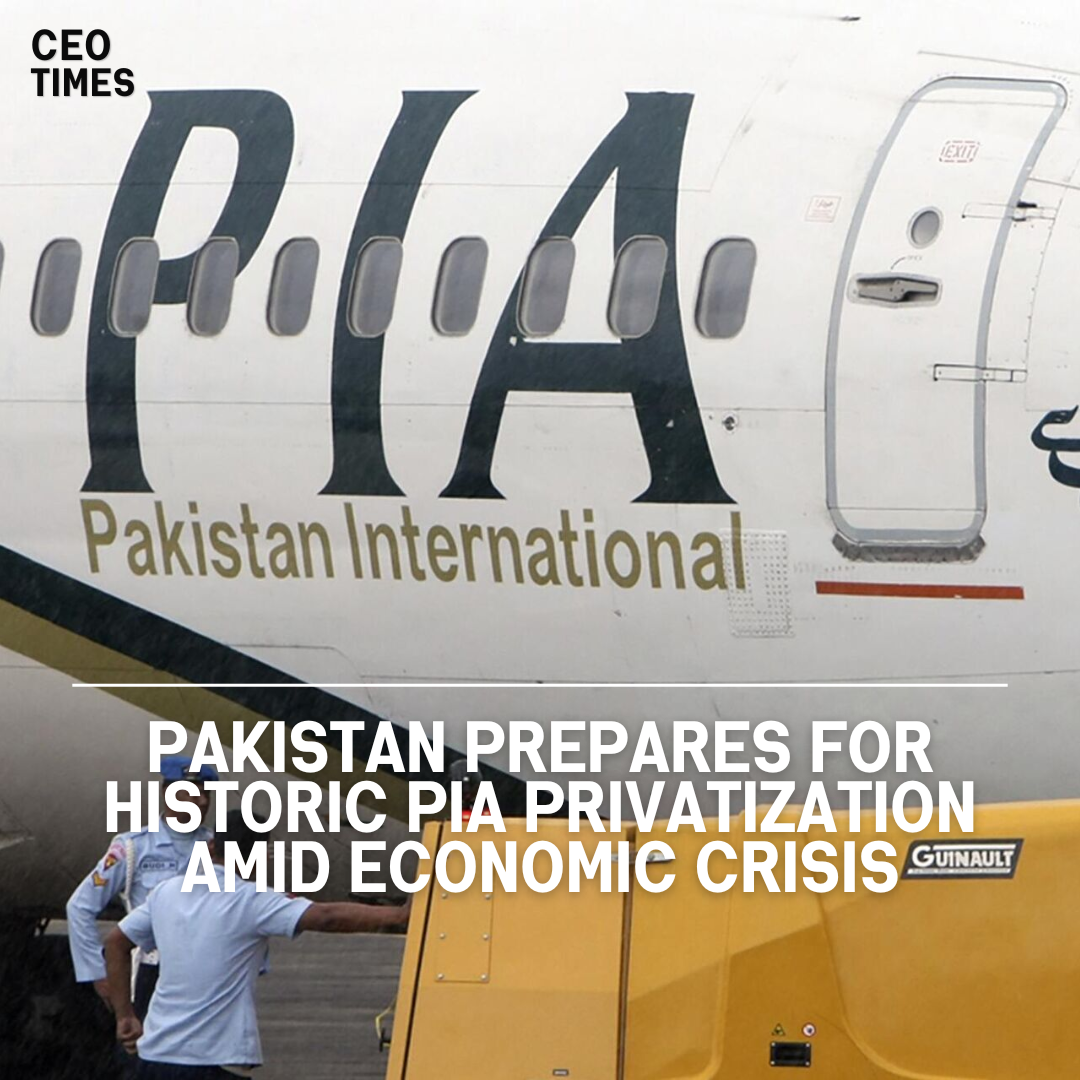As Pakistan faces a deep economic crisis, the caretaker administration is set to implement substantial reforms, including privatizing Pakistan International Airlines (PIA), a move previously avoided by elected governments.
The decision to sell the flag carrier aligns with an agreement made in June with the International Monetary Fund (IMF) for a $3 billion bailout.
Caretaker Administration Takes Charge:
Empowered by the outgoing parliament, the caretaker administration, in office since August and overseeing the upcoming Feb. 8 election, is finalizing plans to meet budgetary targets agreed upon with the IMF.
Privatization Minister Fawad Hasan Fawad stated that the administration’s work is nearly complete, with the remaining steps awaiting cabinet approval.
Ernst & Young’s Privatization Plan:
The privatization plan, crafted by transaction adviser Ernst & Young, will be presented to the cabinet for approval before the administration’s tenure concludes after the election.
The cabinet will decide whether to sell PIA through a tender process or a government-to-government deal.
Unprecedented Progress in Four Months:
Fawad highlighted the administration’s achievements, emphasizing that they have accomplished in four months what past governments struggled to do in over a decade.
The plan involves offering a 51% stake with full management control after segregating the airline’s debts into a separate entity.
PIA, burdened with liabilities of 785 billion Pakistani rupees ($2.81 billion) and accumulated losses of 713 billion rupees, is a key focus of the privatization efforts.
The airline’s CEO anticipates losses of 112 billion rupees for 2023. The success of the privatization could impact Pakistan’s decision to return to the IMF for assistance after the current bailout program concludes in March.
Legislative Amendments and Political Landscape:
In addition to operational measures, the caretaker government has amended a 2016 law that previously hindered the majority share sale of PIA.
With the upcoming elections, the Pakistan Muslim League-Nawaz party is anticipated to win, potentially fast-tracking the sale under the leadership of former Prime Minister Nawaz Sharif.
The IMF expressed satisfaction with the caretaker government’s initiatives to accelerate state-owned enterprise reforms, specifically acknowledging amendments to the PIA privatization law.
However, PIA’s governance and safety standards have faced scrutiny from global aviation authorities, with a ban on lucrative European routes still in place.
Legacy Debt Settlement:
Ernst & Young’s plan involves creating a holding company to address PIA’s legacy debt, including negative equity and losses.
While specific details remain undisclosed, Fawad mentioned an agreement between the government and a consortium of banks, which may involve issuing a five-year bond against the debt.
PIA’s Ongoing Challenges:
Amid the privatization decision, PIA continues to grapple with financial hardships, including seized aircraft due to non-payment issues.
The airline awaits the government’s verdict on the sale, requiring financial support of 23.7 billion rupees to sustain operations for the next five to six months.




















